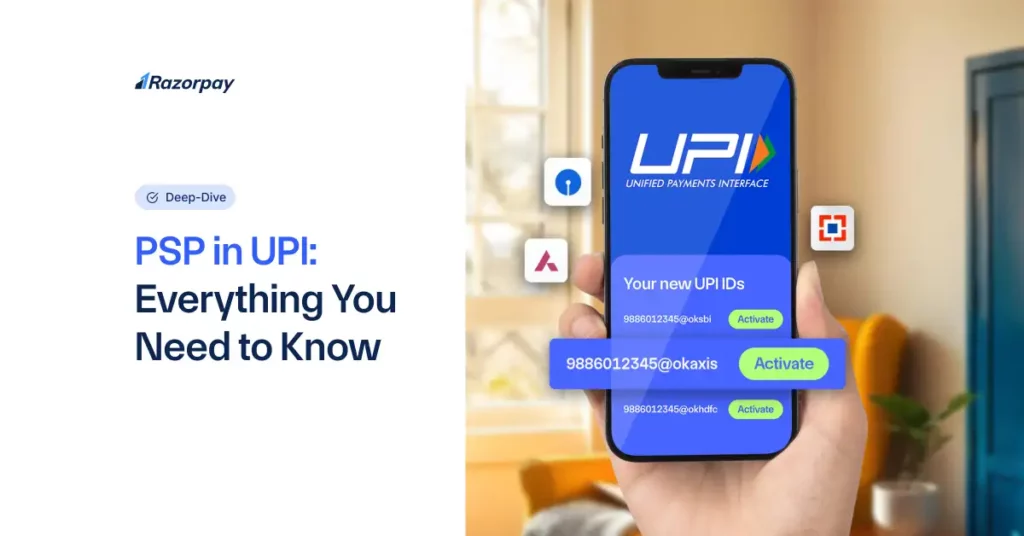Table of Contents
How to Register a PSP in UPI?
To register as a Payment Service Provider (PSP) in UPI, your business or institution must meet specific regulatory and technical requirements. Start by ensuring your PSP has the necessary license from the Reserve Bank of India (RBI) as a payment aggregator or gateway. Additionally, you need to establish a technical partnership with a sponsor bank, which will be responsible for processing UPI transactions.
Once the basic requirements are in place, you can initiate registration through the National Payments Corporation of India (NPCI), which manages UPI. You will need to submit documentation such as financial records, compliance certifications, and technical specifications. The application will undergo a thorough evaluation, and the PSP system or platform you have developed will need to pass rigorous testing to align with UPI standards.
It is essential to strictly adhere to UPI regulations throughout the process. Ensuring compliance with guidelines on transaction limits, security measures, and privacy policies will help prevent any operational issues.
Benefits of PSPs in the UPI Ecosystem
1. Seamless Transactions
PSPs act as a bridge between users, merchants, and financial institutions, ensuring quick and hassle-free payment processing.
2. Cost-Effectiveness
By eliminating unnecessary intermediaries, PSPs reduce transaction costs, making digital payments more affordable for businesses.
3. Enhanced Security
Robust encryption and fraud prevention measures implemented by PSPs protect sensitive data and ensure secure financial transactions.
4. Ease of UPI Integration
PSPs simplify the technical process of integrating with UPI, enabling businesses to adopt UPI quickly and efficiently.
Role of PSPs in Shaping the UPI Payment System
1. Bridge Between Users and Banks
PSPs link end-users and merchants to banks via the UPI platform, enabling real-time fund transfers and seamless payment experiences.
2. User Onboarding and Registration
PSPs handle the onboarding of users, either through their own app or a Third Party Application Provider (TPAP). They also link users’ bank accounts to their UPI IDs and authenticate them during registration to ensure security.
3. Data Security and Compliance
PSPs are responsible for safeguarding user data, including UPI transaction information. They ensure that their systems and the systems of associated TPAPs are compliant with UPI security standards, including mandatory data localisation in India.
4. System Audits and Integrity
PSPs perform regular audits of UPI apps and systems to maintain the integrity and security of transaction data, ensuring a secure user experience.
Detailed Guide to Registering as a PSP on UPI
Step 1: Submit Your Application
Begin by submitting the necessary forms and supporting documents to the National Payments Corporation of India. This includes financial records, compliance certifications, and technical infrastructure details. Ensure all documentation is accurate to avoid delays.
Step 2: Complete the Compliance Check
Align your application with the rules and technical requirements set by UPI. This step involves adhering to security standards, operational protocols, and technical specifications to ensure your system is compatible with the UPI framework.
Step 3: Verification and Approval Process
Your application will undergo a detailed verification process. NPCI will evaluate your compliance with UPI regulations, followed by the final approval. This rigorous scrutiny ensures that only credible PSPs operate within the UPI ecosystem.
Step 4: Set Up User Authentication
Implement a robust authentication system to validate and authenticate users during registration and transactions. This system must comply with UPI’s stringent security standards to safeguard user data and enhance transaction integrity.
Step 5: Onboard Third-Party Application Providers
Collaborate with TPAPs by onboarding them to your platform. Verify that they meet UPI standards to ensure the security of user data and the integrity of the UPI network.
Step 6: Ensure Data Storage Compliance
Comply with India’s data localisation laws by securely storing all payment and transaction data, including UPI transaction details, within the country. This step is critical for regulatory compliance and user data protection.
Step 7: Integration and Testing Phase
Integrate your systems with the UPI platform and conduct comprehensive testing. Ensure all technical aspects, such as APIs, security protocols, and transaction flows, function seamlessly and securely.
Step 8: Go Live and Maintain Ongoing Compliance
Once all the above steps are completed successfully, you can launch your UPI services. Post-launch, continuously monitor compliance with NPCI guidelines and update your systems regularly to enhance security and efficiency.
Conclusion
Payment Service Providers are central to UPI’s growth, enabling secure, seamless transactions and bridging users with banks. This blog outlined the steps to register as a PSP, the benefits they bring—like cost-effectiveness and enhanced security—and their role in shaping the UPI ecosystem. By adhering to regulations and leveraging UPI’s framework, PSPs drive innovation and reliability in India’s digital payment landscape.
Frequently Asked Questions (FAQs):
1. Is there a specific eligibility criterion for a PSP to be registered on UPI?
Yes, a PSP must have a valid license from the Reserve Bank of India (RBI) as a payment aggregator or gateway. They also need to partner with a sponsor bank and meet UPI’s technical and regulatory requirements.
2. What documents are required to register as a PSP in UPI?
Documents include financial records, compliance certifications, technical infrastructure details, and any additional paperwork requested by NPCI during the application process.
3. How long does it take to register as a PSP on UPI?
The registration timeline depends on the completeness of the application and compliance checks. Typically, it involves multiple stages, including verification and testing, which can take several weeks to a few months.
4. Can a PSP offer UPI services to international customers?
No, UPI is currently designed for domestic use within India. PSPs must ensure compliance with India’s regulatory requirements and data localisation laws, limiting services to Indian residents and businesses.


